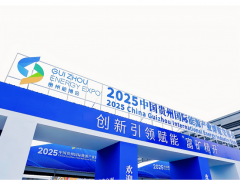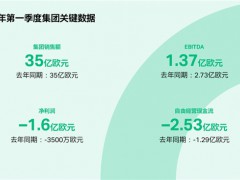據(jù)5月11日Hart Energy報(bào)道,英國(guó)石油公司5月10日表示,在美國(guó)最大的石油和天然氣貿(mào)易游說(shuō)團(tuán)體解決了與英國(guó)能源公司在氣候變化問(wèn)題上的一些分歧后,該公司仍將是美國(guó)石油協(xié)會(huì)(API)的成員。
BP計(jì)劃在未來(lái)10年大幅削減石油產(chǎn)量,并提高可再生能源產(chǎn)能。該公司在一份報(bào)告中表示,盡管“進(jìn)展不平衡”,但API“正朝著正確的方向前進(jìn)”。
API面臨著來(lái)自成員公司和活動(dòng)組織的越來(lái)越大的壓力,要求其改變與氣候變化和鉆井法規(guī)有關(guān)的政策。隨著美國(guó)越來(lái)越關(guān)注氣候問(wèn)題,該貿(mào)易組織開始改變一些立場(chǎng)。今年3月,它表示支持將碳價(jià)格作為緩解氣候變化風(fēng)險(xiǎn)的措施之一。
BP表示,API支持聯(lián)邦政府制定限制甲烷排放的規(guī)定,并支持碳定價(jià)和提高透明度,這讓它受到了“鼓舞”。要知道,甲烷是一種強(qiáng)有力的溫室氣體。
BP在報(bào)告中表示:“API的進(jìn)展有時(shí)并不均衡,但總體而言,該組織在過(guò)去一年取得了相當(dāng)大的進(jìn)展,正朝著正確的方向前進(jìn)。作為會(huì)員,我們將繼續(xù)努力,影響API對(duì)氣候的影響,以及其他與我們?cè)诿绹?guó)業(yè)務(wù)相關(guān)的領(lǐng)域。”
總部位于倫敦的英國(guó)石油公司在首席執(zhí)行官Bernard Looney的領(lǐng)導(dǎo)下,于2020年退出了美國(guó)主要的煉油游說(shuō)團(tuán)體和其他兩個(gè)貿(mào)易團(tuán)體,但仍堅(jiān)持保留API,盡管該公司稱API僅與自己的政策規(guī)劃保持部分的一致。
BP明年將發(fā)布一份關(guān)于API和其他協(xié)會(huì)成員的全面審查報(bào)告。
1月,法國(guó)道達(dá)爾公司(Total SA)成為首家退出API的大型全球能源公司,原因是該公司在氣候政策上存在分歧,并支持放松鉆井規(guī)則,該公司表示不會(huì)續(xù)簽2021年的成員資格。
道達(dá)爾的立場(chǎng)給其它歐洲石油巨頭帶來(lái)了壓力,這些公司已制定了大幅減少碳排放的戰(zhàn)略。此外,荷蘭皇家殼牌公司也選擇延長(zhǎng)API會(huì)員資格,盡管與氣候立場(chǎng)“有些不一致”。
BP的中期報(bào)告還回顧了其參與的其他四個(gè)協(xié)會(huì),其中包括澳大利亞石油協(xié)會(huì)和加拿大石油生產(chǎn)者協(xié)會(huì),這些協(xié)會(huì)與BP的政策保持部分一致。
該公司表示,這四個(gè)組織在氣候立場(chǎng)上取得的進(jìn)展讓它感到鼓舞。
王佳晶 摘譯自 Hart Energy
原文如下:
BP Sticks with API after Climate Shift by US Oil Lobby Group
BP Plc said on May 10 it will remain a member of the American Petroleum Institute (API) after the largest U.S. oil and gas trade lobby group addressed some differences with the British energy company over climate change.
BP, which plans to sharply cut its oil output and boost its renewable energy capacity over the next decade, said in a report that despite “uneven progress,” the API was “heading in the right direction.”
The API has faced growing pressure from member companies and activist groups to change its policies relating to climate change and drilling regulations.
The trade group started to shift some of its positions as the climate-focused Biden administration came to power this year. In March it said it supports a carbon price as one measure to mitigate climate change risk.
BP said it was “encouraged” by the API’s support for federal regulation on limiting emissions of methane, a potent greenhouse gas and its support for carbon pricing as well as improving its transparency.
“API’s progress has been uneven at times but, on the whole, the organization has moved considerably over the past year and is heading in the right direction,” BP said in the report.
“We will continue to make our case—as members—to influence API on climate and many other areas relevant to our business in the U.S.”
London-based BP, led by CEO Bernard Looney, last year quit the main U.S. refining lobby and two other trade groups but stuck with the API despite saying it was only “partially aligned” with its policies.
BP will publish a comprehensive review of its membership of the API and other associations next year.
France’s Total SA in January became the first major global energy company to quit the API due to disagreements over its climate policies and support for easing drilling rules, saying it would not renew its 2021 membership.
Total’s stance put pressure on other European oil majors that have set out strategies to sharply reduce carbon emissions.
Royal Dutch Shell Plc also chose to extend its API membership despite “some misalignment" with its climate stance.
BP’s interim report also reviewed its participation in four other associations which were partly aligned with its policies including the Australian Institute of Petroleum and the Canadian Association of Petroleum Producers.
BP said it was encouraged by progress made by all four groups over their climate stances.
免責(zé)聲明:本網(wǎng)轉(zhuǎn)載自其它媒體的文章,目的在于弘揚(yáng)石化精神,傳遞更多石化信息,并不代表本網(wǎng)贊同其觀點(diǎn)和對(duì)其真實(shí)性負(fù)責(zé),在此我們謹(jǐn)向原作者和原媒體致以敬意。如果您認(rèn)為本站文章侵犯了您的版權(quán),請(qǐng)與我們聯(lián)系,我們將第一時(shí)間刪除。







